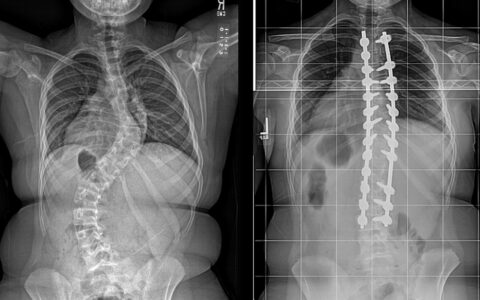Patients who take opioids preoperatively have elevated risk during and after joint replacement surgery, according to new research by Meridith Peratikos, M.S., director of enterprise research at axialHealthcare in Nashville, Tennessee, and biostatistician at Vanderbilt University Medical Center.
In study results published in Pain Medicine, Peratikos and colleagues found that patients who take opioids before elective joint replacement surgery have longer lengths of stay in the hospital, higher medical expenses, more frequent adverse surgical outcomes and reduced postoperative opioid cessation rates compared to patients without preoperative opioid use.
“We were interested in really understanding how opioid use going into elective surgery can impact outcomes as we were thinking about better managing patients and pain,” said Peratikos.
Surveying Claims Data
The researchers surveyed claims data from 34,792 adults who received elective knee, hip or shoulder replacement surgery between 2014 and 2015. A patient was defined as a preoperative opioid user if opioid prescriptions were filled both 1-30 days and 31-90 days before surgery. In the 90 days leading to surgery, 8,139 (23.3 percent) patients filled an opioid prescription, and 6,043 (17.4 percent) of those patients met the definition for preoperative opioid use.
“We had a large cohort and looked at all the outcomes we could draw out of this database,” Peratikos said.
Preoperative opioid use was associated with an average $1,084 increase in postoperative medical spend, a 43 percent increase in the rate of unplanned readmission within 30 days, and a 35 percent increase in surgical site infection rates. Only 64 percent of preoperative opioid users ceased taking opioids in the 18 months after surgery, while 95 percent of patients without preoperative opioid use ceased taking opioids within the same time period.
Improving Pain Management
Prescription opioids are an important and effective treatment for pain. However, opioid use disorder and overdose have been a growing problem throughout the United States. The new study suggests medically managing the tapering of opioid doses over time could have an added benefit of improving surgery outcomes.
“With higher preoperative surgical dose, the outcomes tended to be more magnified.”
“We did see in our paper evidence that with higher preoperative surgical dose, the outcomes tended to be more magnified,” Peratikos said. Length of stay, postoperative spend, surgical site infection rates, surgical revision rates and opioid cessation rates all increased as opioid dose increased. “That implies there’s evidence that even just reducing the presurgical dose, and not necessarily having to completely go off opioids, could improve outcomes.”
The next step will be to put the findings into action, Peratikos said. “Now we need to start focusing our research efforts on implementation-type studies where we can show evidence that we can prevent or manage some of these worse patient outcomes based on preoperative opioid use.”




